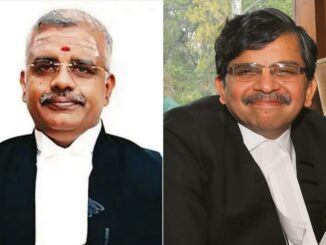
EC’s largest liquor seizure in India was made in state
AHMEDABAD (TIP): In Gujarat, liquor is banned — but prohibition seemed to be on the rocks when the biggest volume of alcohol seizures in India was made in the state after the model code of conduct for elections came into force. The liquor recovery in Gujarat was announced by chief election commissioner V S Sampath on April 21 at a press meeting in Ahmedabad.
So far, Indian-Made Foreign Liquor (IMFL) worth Rs 12.57 crore have been seized by Election Commission teams in the state, in the run-up to the polls. So what is the nature of the booze flow in the state — which put prohibition in place since its formation in 1960 — when the Election Commission is not looking? According to government figures declared in the last assembly session in February 2014, the state police registered 35,058 cases pertaining to seizures of country liquor and IMFL over the past three years ending May 2013.
The financial year 2012-13 registered the highest number (12,344) of cases.In all, police seized 4.07 lakh litres of country liquor and 13.21 lakh bottles of IMFL in these cases — the stock wa s worth more than Rs 36 crore. The same data shows that Ahmedabad topped the chart with 9,200 cases followed by Rajkot with 6,499 cases. Booze for ballot, reality in state While no police official was willing to be quoted on record about the flow of liquor to specific pockets in the state ahead of elections, sources said that ‘liquor for vote’ was a reality in several places.
During polls, the quantum of seizures made by the Election Commission remains higher than that of the police. Interestingly, the transport of liquor from outside to Gujarat diminishes during the election period as no major consignments are sent to the state fearing seizures and losses. Bootleggers generally stock up goods before the estimated poll date and release them slowly at higher prices. Does the liquor affect voter turnout? History says that it has not swung the voting pattern significantly for any seat.
“At the most, it can be used as a tool to lure voters to cast their votes,” a police official said. “But most constituencies are so diverse that inducements seldom work. The booze tactic is used mostly in urban peripheries, and tribal and rural areas.” Poll-eve high, and revolt It is estimated that liquor demand increases manifold during the election season as many parties resort to supplying liquor to people anticipating favourable voting.
In a recent development though, many communities — like the Thakors of Ahmedabad district and Central Gujarat — have opposed the practice and have even decided to abstain from voting for candidates who offer liquor. Police sources say that cops, for their part, have been told to become more vigilant. “As the Election Commission is keeping a close eye on liquor supplies, police have no option but to monitor bootlegging hotspots,” a source said.





Be the first to comment